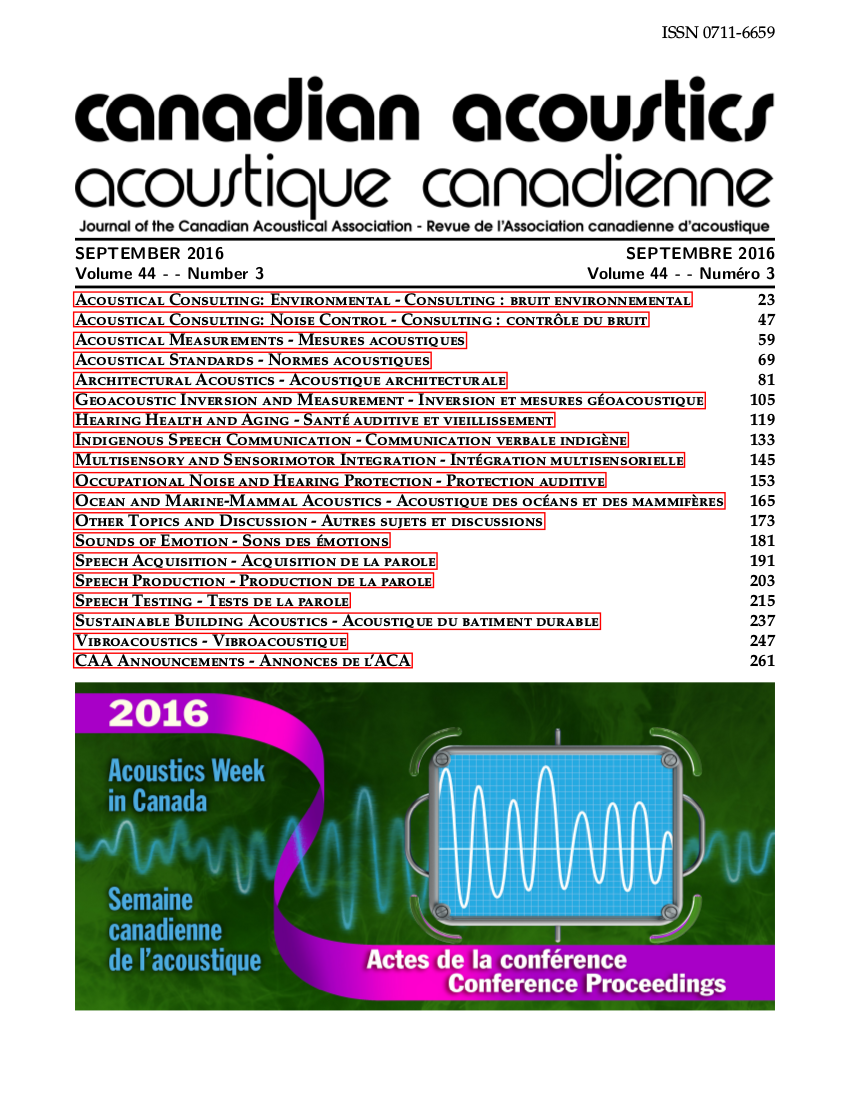Perception of emotional speech by listeners with hearing aids
Résumé
A talker’s emotional state is one important type of information carried by the speech signal. While the frequency and amplitude compression performed by hearing aids may make speech easier to understand, little is known about how such processing affects users’ perception of emotion in speech. This study investigated how hearing aid use affected the perception of emotion in speech and the recognition of speech spoken with emotion. Listeners were hearing aid users who were tested with and without their aids in separate sessions. They heard sentences spoken by a young female actor portraying different vocal emotions, and were asked to report the keyword and identify the portrayed emotion. The use of hearing aids improved listeners’ word recognition performance from 43% correct (unaided) to 68% correct (aided). In contrast, hearing aids did not improve listeners’ emotion identification (38% unaided, compared to 40% aided). Emotions that were more easily identified were not necessarily the same emotions associated with better word recognition. We conclude that the types of information carried by the speech signal are differentially affected by hearing aids; in this case, hearing aids improved the recognition of what was spoken but not the identification of vocal emotion.
Fichiers supplémentaires
Publié-e
Comment citer
Numéro
Rubrique
Licence
Author Licensing Addendum
This Licensing Addendum ("Addendum") is entered into between the undersigned Author(s) and Canadian Acoustics journal published by the Canadian Acoustical Association (hereinafter referred to as the "Publisher"). The Author(s) and the Publisher agree as follows:
-
Retained Rights: The Author(s) retain(s) the following rights:
- The right to reproduce, distribute, and publicly display the Work on the Author's personal website or the website of the Author's institution.
- The right to use the Work in the Author's teaching activities and presentations.
- The right to include the Work in a compilation for the Author's personal use, not for sale.
-
Grant of License: The Author(s) grant(s) to the Publisher a worldwide exclusive license to publish, reproduce, distribute, and display the Work in Canadian Acoustics and any other formats and media deemed appropriate by the Publisher.
-
Attribution: The Publisher agrees to include proper attribution to the Author(s) in all publications and reproductions of the Work.
-
No Conflict: This Addendum is intended to be in harmony with, and not in conflict with, the terms and conditions of the original agreement entered into between the Author(s) and the Publisher.
-
Copyright Clause: Copyright on articles is held by the Author(s). The corresponding Author has the right to grant on behalf of all Authors and does grant on behalf of all Authors, a worldwide exclusive license to the Publisher and its licensees in perpetuity, in all forms, formats, and media (whether known now or created in the future), including but not limited to the rights to publish, reproduce, distribute, display, store, translate, create adaptations, reprints, include within collections, and create summaries, extracts, and/or abstracts of the Contribution.


